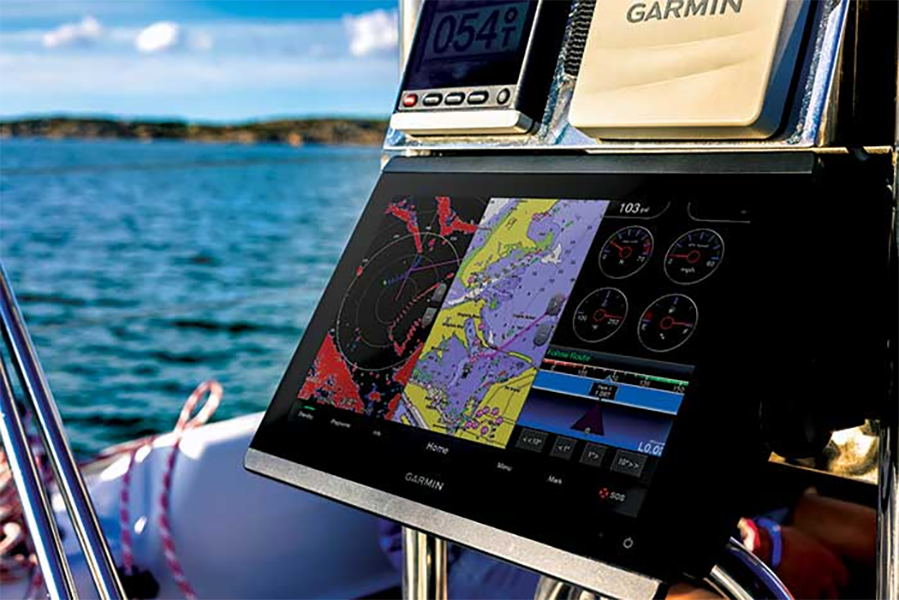Navigating the Seas with Precision: Unveiling the Marine GPS Device Guide
In today’s interconnected world, Marine GPS Device Guide have become an indispensable tool for navigation and exploration. While many are familiar with their role in terrestrial travel, the significance of GPS extends far beyond the land. In the realm of marine exploration, sailors and seafarers rely on specialized GPS devices tailored for the challenges of the open waters. All things considered, we’ll delve into the world of marine GPS devices and explore how they enhance safety, efficiency, and precision in navigating the vast seas and oceans.
Understanding the GPS Device:
As a matter of fact, a GPS (Global Positioning System) device is a sophisticated electronic tool that utilizes a network of satellites orbiting the Earth to determine precise geographical locations. This network provides real-time information on latitude, longitude, altitude, and time synchronization to users across the globe. While GPS devices are commonly used in cars, airplanes, and smartphones for land navigation, their adaptation for marine environments offers a whole new range of features specifically designed for
seafaring adventures.
Marine GPS Device Guide: A Nautical Companion
Marine GPS devices are specifically engineered to meet the unique challenges posed by the vast
expanse of water. After that, let’s explore some key features that distinguish them from their land-based
counterparts.
- Nautical Charts and Maps: Marine GPS devices are equipped with detailed nautical charts and maps,
which provide crucial information about coastal areas, sea depths, navigation aids, and potential
hazards. These charts, combined with GPS positioning, offer sailors an accurate and comprehensive view
of their surroundings, ensuring safe passage through unfamiliar waters. - Water Resistance: Given the marine environment’s inherent exposure to water and humidity, marine
GPS devices are built to withstand the elements. They are designed with enhanced water resistance,
often meeting IPX7 or IPX8 standards, ensuring reliable performance even in challenging weather
conditions. - AIS Integration: Automatic Identification System (AIS) integration is a notable feature found in many
marine GPS devices. AIS enables vessels to exchange real-time information, including position, speed,
and course, allowing sailors to identify nearby ships, anticipate collisions, and navigate crowded
waterways safely. - Buoyancy and Floatability: Marine GPS device guide are designed to float or be buoyant, preventing them
from sinking in case of accidental drops or water submersion. This feature adds an extra layer of
security, reducing the risk of losing the device and crucial navigational data. - Enhanced Positioning Accuracy: Marine GPS devices utilize advanced technologies, such as
Differential GPS (DGPS) or Real-Time Kinematic (RTK), to enhance positioning accuracy. These
techniques mitigate errors caused by factors like atmospheric conditions and satellite geometry,
ensuring precise navigation in both coastal and open-water environments.
Benefits of Marine GPS Devices:
As has been noted, the integration of marine GPS devices into seafaring expeditions offers a multitude of benefits for sailors, boaters, and maritime professionals:
- Safety and Emergency Response: Accurate positioning and real-time tracking provided by marine GPS
devices significantly enhance safety at sea. In case of emergencies, distress signals can be precisely
transmitted, allowing rescue teams to locate vessels quickly and provide timely assistance. - Efficient Route Planning: Marine GPS devices enable efficient route planning, taking into account
factors like tides, currents, and potential obstructions. This facilitates optimal voyage planning, fuel
efficiency, and minimizes the risk of accidents or delays. - Geofencing and Waypoint Navigation: By setting virtual boundaries (geofences) and waypoints,
marine GPS devices can alert sailors when they approach predetermined areas or deviate from planned
routes. This functionality ensures adherence to designated areas and enhances overall situational
awareness. - Fishing and Navigation Assistance: For anglers and fishermen, marine GPS devices can mark fishing
spots, log catch locations, and provide information on underwater structures. These devices help
optimize fishing strategies, leading to more successful and enjoyable experiences on the water.
Sea-ing is Believing: The Wonders of Marine GPS
Another key point, navigating the deep-blue doesn’t need to be guesswork, thanks to the little geniuses we call marine GPS devices. No more puzzling over nautical charts; these gadgets got your back with sharp charts, AIS integration, and impeccable accuracy. Whether you’re off sailing, exploring coastal waters, or in hot pursuit of the big catch, a marine GPS is your trusty sidekick.
Stumped on which marine GPS to pick? Fret not! Visit us at Black Label Marine Group at Ocala, Clearwater, or Punta Gorda. We’re ready to help you choose the perfect navigation partner for your boat.
Frequently Asked Questions (FAQs)
A Marine GPS device is a specialized version of a regular GPS, tailored to withstand the unique challenges posed by the sea. They come equipped with detailed nautical charts and maps, AIS integration, and enhanced positioning accuracy.
Marine GPS devices offer real-time tracking and accurate positioning, enhancing safety during sea travel. In emergencies, they allow precise transmission of distress signals, aiding rescue teams in locating the vessel quickly.
AIS or Automatic Identification System is a feature in many marine GPS devices. It allows vessels to exchange real-time information, helping sailors identify nearby ships, avoid collisions, and safely navigate crowded waterways.
Marine GPS devices can mark fishing spots, log catch locations, and provide information on underwater structures. These features help optimize fishing strategies, leading to more successful and enjoyable experiences on the water.
Black Label Marine Group, with showrooms at Ocala, Clearwater, and Punta Gorda, offers assistance in choosing the perfect Marine GPS device for your boating needs.

